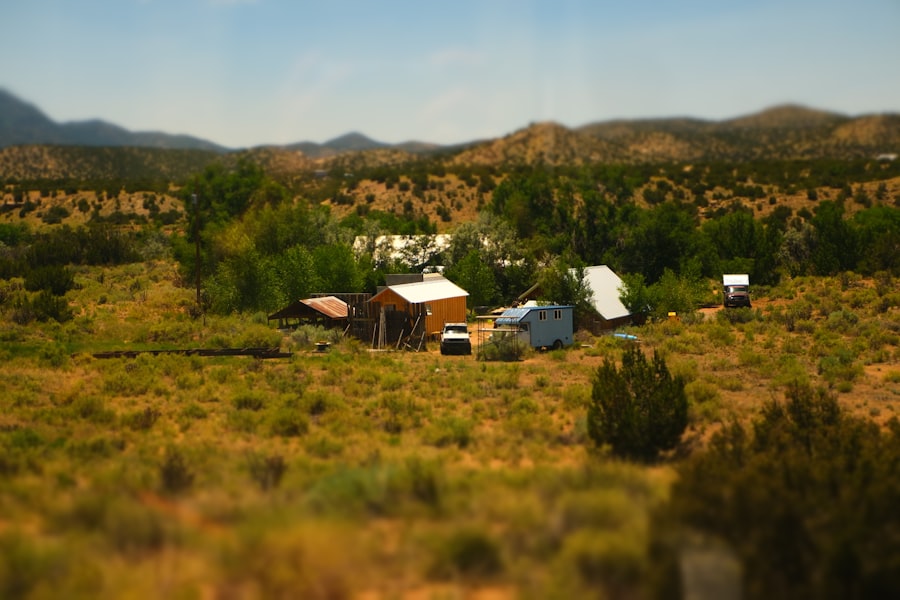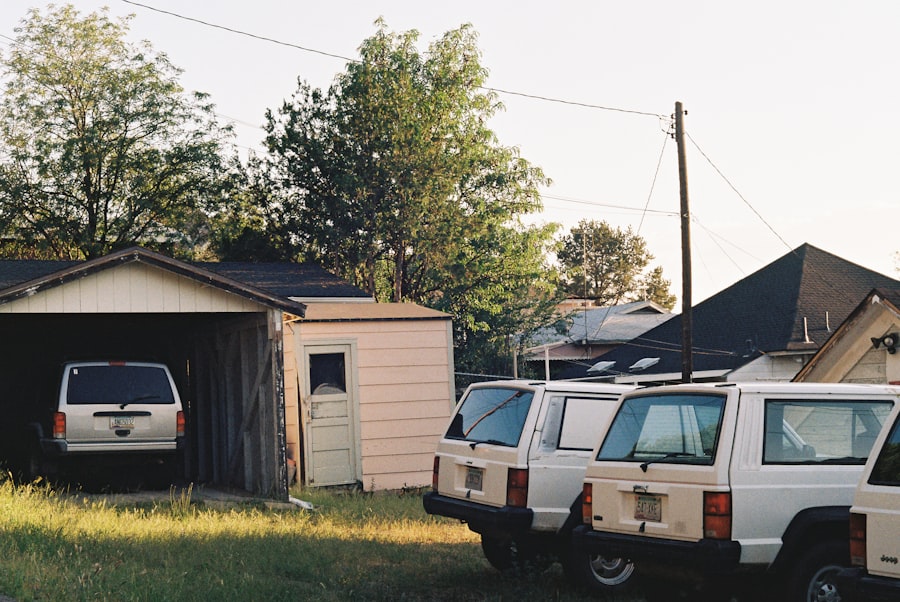The concept of trailer park homes, often referred to as mobile homes or manufactured homes, has a rich and varied history that dates back to the early 20th century. The origins can be traced to the 1920s when the first travel trailers were produced, primarily designed for recreational use. These early models were often constructed from lightweight materials, allowing for easy transport and mobility.
As the Great Depression hit in the 1930s, many families found themselves in dire financial straits, leading to an increased interest in affordable housing solutions. This period saw the emergence of trailer parks as a viable option for those seeking shelter without the burden of traditional homeownership. By the post-World War II era, the demand for affordable housing surged as returning veterans sought to establish their lives and families.
The government responded with initiatives that encouraged the development of mobile home parks. The Housing Act of 1949 played a pivotal role in this transformation, providing funding for the construction of low-cost housing. As a result, trailer parks began to proliferate across the United States, offering a practical solution for many who were unable to afford conventional homes.
The 1960s and 1970s marked a significant evolution in the design and construction of mobile homes, with advancements in technology leading to improved safety standards and greater comfort.
Key Takeaways
- Trailer park homes have a rich history and have evolved significantly over time.
- Living in a trailer park offers affordability and a strong sense of community.
- Trailer parks provide flexibility and mobility not commonly found in traditional housing.
- There are many misconceptions about trailer parks that do not reflect the reality of their residents.
- Trailer park homes can be sustainable and eco-friendly, making them a green housing option.
The Benefits of Living in a Trailer Park
Living in a trailer park offers numerous benefits that appeal to a diverse range of individuals and families. One of the most significant advantages is the sense of community that often flourishes within these parks. Residents frequently form close-knit relationships with their neighbors, fostering an environment of support and camaraderie.
This communal atmosphere can be particularly beneficial for those who may feel isolated or disconnected in more traditional living arrangements. Social events, potlucks, and shared amenities such as pools or clubhouses further enhance this sense of belonging. Another notable benefit is the lifestyle flexibility that trailer park living provides.
Many parks are located in desirable areas, often near recreational opportunities such as lakes, parks, and hiking trails. This proximity allows residents to enjoy an active lifestyle without the constraints of urban living. Additionally, trailer parks often cater to various demographics, including retirees seeking a peaceful environment and young families looking for affordable housing options.
The ability to downsize or upgrade within the same community can also be appealing, as it allows residents to adapt their living situation to their changing needs over time.
The Community Atmosphere in Trailer Parks

The community atmosphere in trailer parks is one of their defining characteristics, setting them apart from traditional neighborhoods. Residents often share common interests and experiences, which can lead to strong bonds and friendships. Many trailer parks organize social events that encourage interaction among residents, such as holiday celebrations, game nights, and community clean-up days.
These gatherings not only foster a sense of belonging but also create opportunities for residents to collaborate on projects that enhance their living environment. Moreover, the close proximity of homes in trailer parks often leads to a unique form of neighborly support. Residents may look out for one another, offering assistance during times of need or simply checking in on each other regularly.
This interconnectedness can be particularly comforting for those who may be new to an area or facing personal challenges. In many cases, trailer parks become more than just places to live; they evolve into vibrant communities where individuals feel valued and connected.
The Affordability of Trailer Park Homes
| Metric | Value | Notes |
|---|---|---|
| Average Purchase Price | 45,000 | Varies by location and size |
| Monthly Lot Rent | 350 | Includes utilities in some parks |
| Average Maintenance Cost (Annual) | 1,200 | Repairs and upkeep |
| Median Household Income (Nearby Area) | 55,000 | Influences affordability |
| Percentage of Income Spent on Housing | 30% | Recommended affordability threshold |
| Average Size (Square Feet) | 800 | Varies by model |
| Financing Interest Rate | 7.5% | Typical for trailer home loans |
| Average Loan Term (Years) | 15 | Loan duration for purchase |
Affordability is one of the primary reasons many individuals and families choose to live in trailer parks. The cost of purchasing or renting a mobile home is typically significantly lower than that of traditional houses, making it an attractive option for those on a budget. For example, while the median price of a single-family home in many urban areas can exceed several hundred thousand dollars, a mobile home can often be acquired for a fraction of that cost.
This financial accessibility allows people from various socioeconomic backgrounds to achieve homeownership or secure stable housing. In addition to lower purchase prices, trailer park living often comes with reduced ongoing expenses. Many parks offer amenities such as water, sewage, and trash collection included in the monthly rent or lot fees, which can lead to substantial savings over time.
Furthermore, mobile homes are generally more energy-efficient than traditional houses due to their smaller size and modern construction techniques. This efficiency translates into lower utility bills, making it easier for residents to manage their finances while enjoying a comfortable living environment.
The Flexibility and Mobility of Trailer Park Living
One of the most appealing aspects of trailer park living is the inherent flexibility and mobility it offers. Unlike traditional homes that are fixed in place, mobile homes can be relocated if necessary. This feature is particularly advantageous for individuals who may need to move for work or personal reasons but still wish to maintain their investment in a home.
The ability to transport a mobile home allows residents to adapt to changing circumstances without sacrificing their living situation. Additionally, many trailer parks are situated in desirable locations that provide easy access to amenities such as shopping centers, schools, and recreational facilities. This strategic positioning allows residents to enjoy the benefits of suburban or rural living while remaining close to urban conveniences.
For those who value travel or seasonal living arrangements, some mobile home owners choose to relocate their homes to different parks throughout the year, embracing a lifestyle that combines adventure with comfort.
The Misconceptions and Stereotypes Surrounding Trailer Parks

Despite the numerous advantages associated with trailer park living, misconceptions and stereotypes persist in popular culture. Many people associate trailer parks with poverty or instability, often overlooking the diverse range of individuals who call these communities home. This stigma can lead to discrimination against residents and contribute to negative perceptions about their quality of life.
In reality, many trailer parks are well-maintained and offer a high standard of living. Furthermore, media portrayals often reinforce these stereotypes by depicting trailer park residents as uneducated or irresponsible individuals. However, this representation fails to acknowledge the reality that many residents are hardworking professionals, retirees enjoying their golden years, or families striving for a better life.
By challenging these misconceptions and highlighting the positive aspects of trailer park living, it becomes possible to foster greater understanding and appreciation for these unique communities.
The Sustainability and Eco-Friendly Aspects of Trailer Park Homes
Sustainability is an increasingly important consideration in modern housing discussions, and trailer park homes offer several eco-friendly advantages. Many mobile homes are designed with energy efficiency in mind, utilizing modern insulation materials and energy-efficient appliances that reduce overall energy consumption. This focus on sustainability not only benefits the environment but also helps residents save money on utility bills.
Additionally, trailer parks often promote sustainable living practices through community initiatives such as recycling programs and shared gardens. These efforts encourage residents to adopt environmentally friendly habits while fostering a sense of responsibility toward their surroundings. Some parks even incorporate green spaces and natural landscaping into their designs, enhancing biodiversity and providing residents with access to nature right outside their doors.
Tips for Finding the Right Trailer Park Home for You
When searching for the ideal trailer park home, several factors should be considered to ensure a successful match with your lifestyle and needs. First and foremost, it is essential to research various parks in your desired area thoroughly. Look for reviews from current or former residents to gain insight into the community atmosphere and management practices.
Pay attention to amenities offered by each park, such as recreational facilities or social events that align with your interests. Another critical aspect is understanding the financial implications of living in a trailer park. Be sure to inquire about lot fees, utility costs, and any additional expenses associated with maintaining your mobile home.
It may also be beneficial to visit potential parks during different times of day or week to gauge the overall vibe and activity levels within the community. Finally, consider your long-term plans; whether you envision staying in one location for years or prefer the flexibility of moving frequently will influence your choice significantly. By taking these factors into account and approaching your search with an open mind, you can find a trailer park home that not only meets your financial needs but also enriches your life through community engagement and personal fulfillment.



